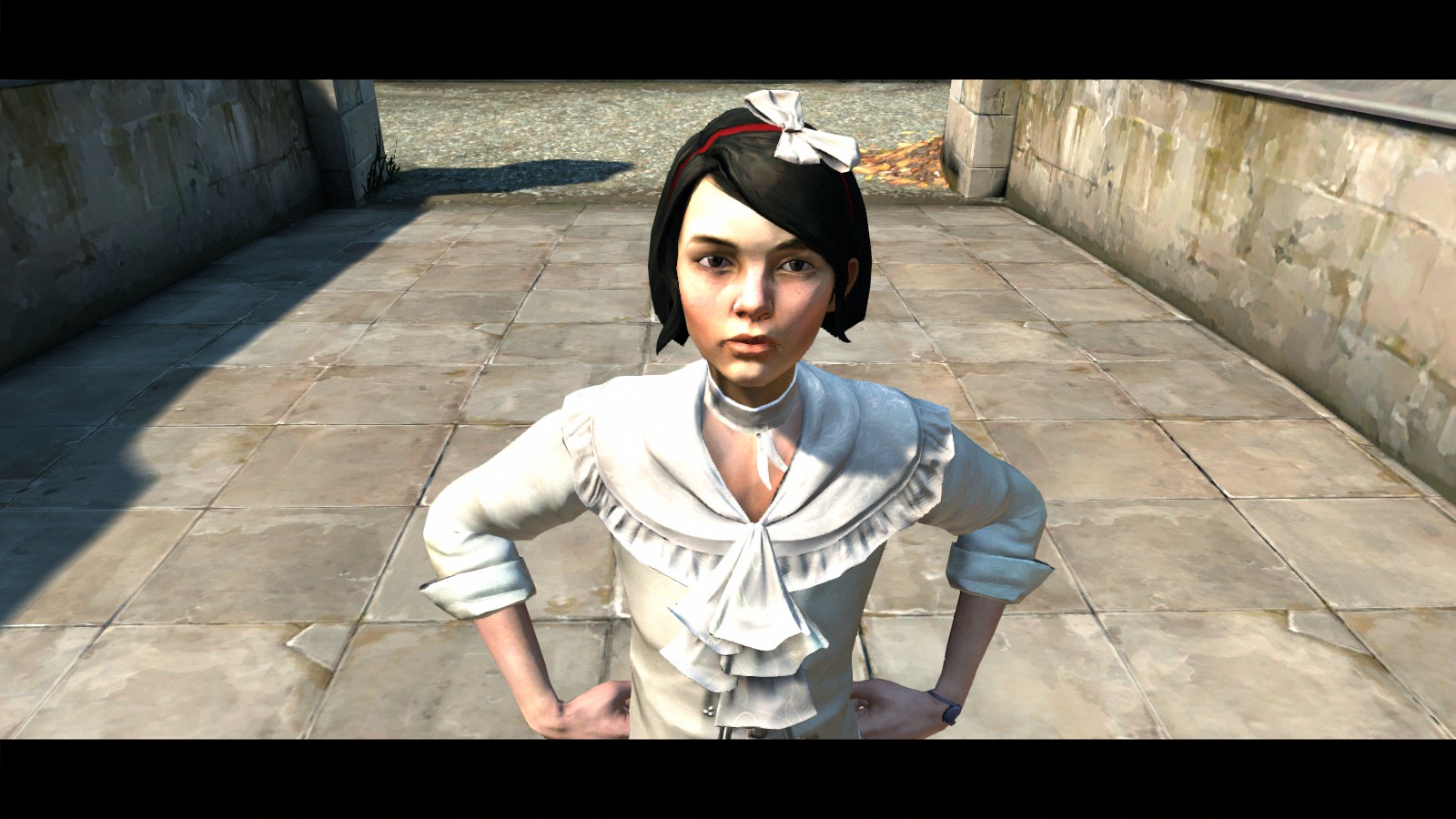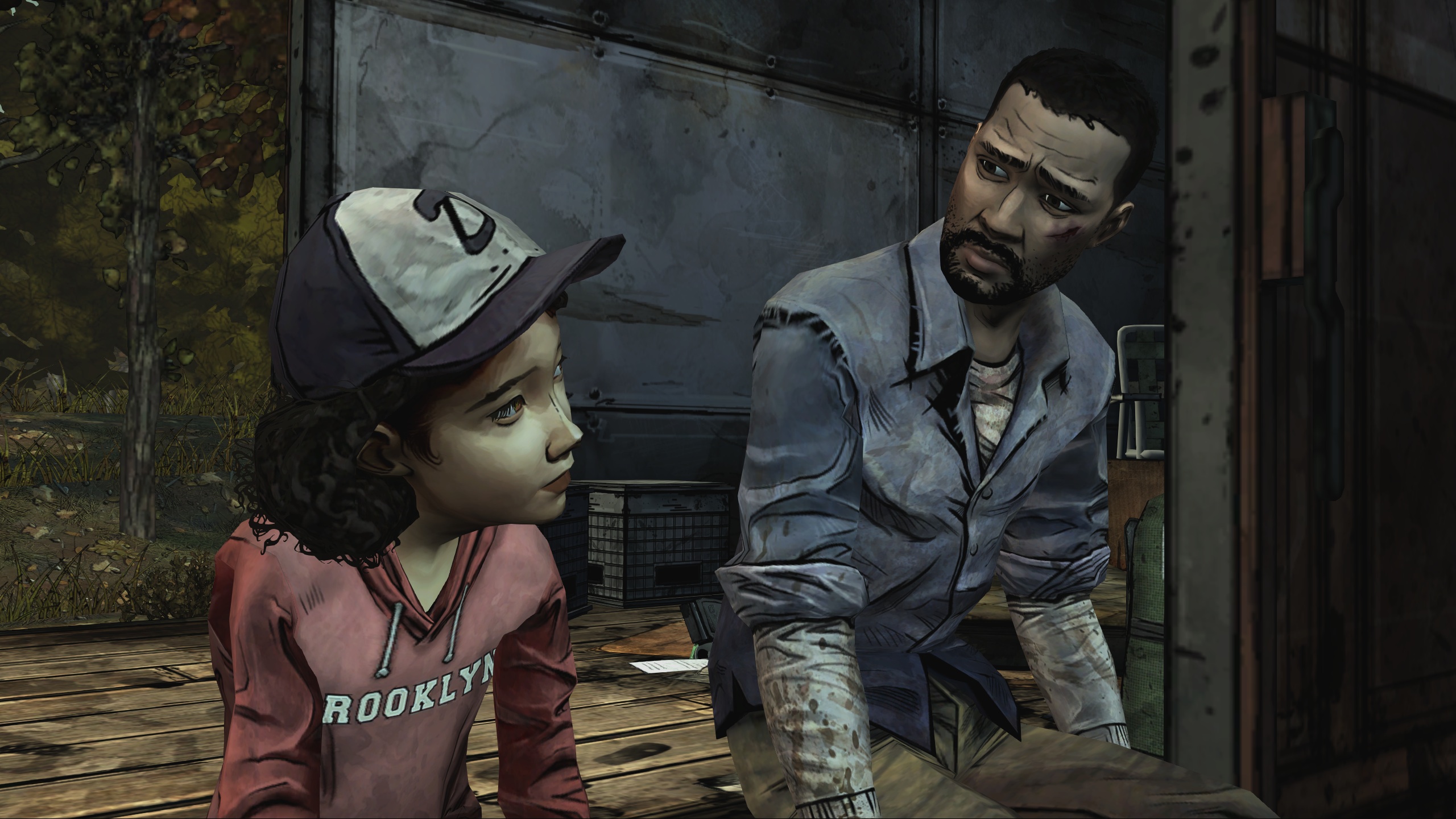This post has not been edited by the GamesBeat staff. Opinions by GamesBeat community writers do not necessarily reflect those of the staff.
[Warning: Spoilers for Bioshock, Bioshock 2, The Walking Dead, Dishonored, Mass Effect 3, and Heavy Rain are ahead.]
What is it lately with all these damn rascally kids in my Mature rated video games? ShepKid in Mass Effect 3, Clementine in The Walking Dead, Emily in Dishonored. I mean, there’s got to be a design or storytelling reason for them to be there, right (other than to bug the crap out of me)? Otherwise these particular kids wouldn’t be front and center in their respective games; they’d just be like the generically named brats that populate Skyrim, having no purpose for existence, except to demonstrate that the developer wanted to add children for immersion’s sake.
The first two games that use children in an unusual and somewhat problematic way that leap to mind are Bioshock and Bioshock 2. The first game gives you the option to harvest the ADAM within the Little Sisters for more currency to buy stronger power ups. Of course, you can also choose not to kill them and get more or less the same amount of currency, as the sisters reward you for not gutting them by giving you the money later on down the road. You just don’t get access to those powers as quickly. Harvesting the sisters will result in the game’s bad ending while saving them will result in the good one.
The morality system in Bioshock is about as nuanced as the Jedi and Sith conflict in Star Wars. Children are nothing more than a possible power up option that come at the cost of being a monster, albeit at a safe, comfortable distance. You don’t get to see your character murder the little girls, which, while unquestionably disturbing, would have probably made the morality system more impactful. You just get to glimpse their Adamy-gall bladder shaped Sea Slug things squirming about as you stuff them in your pocket…to take to the literal power up vending machine.

It's okay to murder a little girl as long as it's not onscreen, apparently.
Bioshock 2 actually makes use of one of the little sisters, Eleanor, and uses her as a moral gauge for your actions. There are several times throughout the sequel that you have the option to murder people who have impeded your progress through the game. Killing them will result in possible satisfaction for you, but it will teach Eleanor, your ward in distress, that vengeance is always a preferable option to peace and forgiveness, resulting in a darker ending. It’s still a blunt morality system that hinges on a couple of choices throughout the game and it’s a system that completely determines Eleanor’s personality by the end of the game but, hey, at least she’s not the equivalent of a Rapture Pac Man pellet.
Eleanor and the little sisters are meant to be mirrors that reflect the choices you’ve made throughout Rapture, but they don’t work (for me) because they’re so simplistic. Bioshock, as many games do, takes a concept (killing someone) that is so far beyond the average gamer’s comprehension—I’m including myself in that group—and makes it a blunt, simple matter: kill this person and it will result in a darker ending. Eleanor is the middlewoman to get to whatever ending you choose to pursue, but she’s still nothing more than an avenue to get that ending, somebody who is completely molded by your actions.
The same is true for Dishonored’s Emily Kaldwin, who is nothing more than a gauge for how many people you’ve killed. Keep your chaos level low, and she’ll come out of all this nasty overthrow-the-tyrants business as a healthy, stable ruler who leads Dunwall into a prosperous era. Kill everyone in your path and she leads her kingdom into an era of violence and terror. Again, a personality that is determined completely by your actions.

Not shown: Emily Kaldwin's sassy imitation of Colbert's Wag of the Finger.
Eleanor is primarily the reason I rolled my eyes when I met Clementine during my first playthrough ofThe Walking Dead. Here I was playing yet another mediocre game with branching storylines and a child whose level of dickishness was going to be completely determined by my actions. Luckily, I was wrong on both counts. Not only is The Walking Dead one of the best games to be released in years, Clementine also subverts the morality mechanic seen in both Bioshock(s) and Dishonored. The game never outright tells you that Clem’s personality will change; it just seems to suggest it with indicators that read “Clementine will remember that.” But she never becomes a product of your actions, at least not completely. Clementine at the end of The Walking Dead is very much the girl she was at the beginning of the game; she’s stronger and more determined, yes, but she’s still the scared little girl clinging to what innocence she has left in a bleak world—regardless of what choices you make. She’s the most realistic child that’s ever been in a video game and still technically a morality gauge, but one that’s actually meant to affect you on an emotionally level, not change the gamescape by offering you gameplay or ending incentives.
Should she be the standard for a child’s portrayal in a video game? No idea. She’s perfect for the universe she inhabits, but it’s hard to imagine Eleanor being more realistic and accomplishing the game’s intentions of presenting with difficult moral situations, except, well, they’re not that difficult anyway. Giving a player a choice in which a minor character dies and the simplistic morality gauge tilts in one direction or the other does not equate to creating a situation where the player frets over the decision and then possibly feels guilt after the fact. Using sweet and innocent but corruptible children archetypes doesn't make the bluntness of those contrived situations go away, either. (And why are all these gauge-children girls? Sure, there’s Shepkid, but his functionality is to give the player insight into Commander Shepard’s conscience. One could also make the case for Heavy Rain’s Shaun, I suppose, but his rescue doesn’t really depend on any moral choices since you can save him in several ways.)

I would make an attempt at a witty caption BUT I'M TOO BUSY CRYING MY EYES OUT.
So why do I have a stick up my ass about this? Well, mostly because these gauge-children are a cheap, ineffective way of convincing players that their actions are meaningful and because there are only a handful of games that are dark games that put children at the forefront, almost all seem to be indie games. The Binding of Isaac and Limbo, despite the fact that neither game is rated by the ESRB, are mature games that star children in very violent and religious situations. They also happen to be high quality games. But besides that, just think of how some of the more mature, thought provoking franchises we’ve got out there could be made even more interesting by starring a child.
Why not have a kid traversing the wastelands of Fallout 3, using only his or her wits for survival? A different game, I’d imagine, than playing the rugged, gun-toting, bottle caps scavenging Wastelander. Perhaps a better one even.
What about you? Any dark games you want to see starring a child protagonist? Chime in with the comments feature below.
